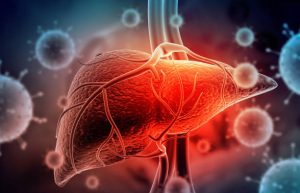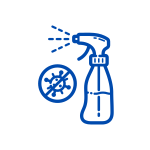
Prevention of acute viral Hepatitis
Be sure to get the Hepatitis A Vaccine
Hepatitis A is a viral infectious disease, and most cases of Hepatitis A are acute with symptoms of vomiting, diarrhea, fever and jaundice. Older people will have more severe symptoms and may also have a chance to develop into fulminant hepatitis (acute liver failure) with a high mortality rate. Currently, there is no specific drug to treat Hepatitis A, and the drugs prescribed by doctors usually can only relieve the symptoms. Therefore, the Hong Kong Department of Health recommends that persons at higher risk of infection may consider receiving Hepatitis A vaccine, which is a safe and effective way to prevent infection.
Hepatitis A vaccine – Choose Swindon Medical
Name: Hepatitis A Vaccine (intramuscular injection in the arm)
Suitable for: Aged 1 or above
-
-
Hepatitis A Vaccine can effectively prevent Hepatitis A viral infection
-
One month after the first dose of the Hepatitis A vaccine, about 95% of people develop protective antibodies against infection
-
Hepatitis A vaccine is very safe, with most common side effects being developing pain, redness and heat at the injection site
-
The entire vaccination procedure requires a total of two doses of vaccine, and the second dose can be received six to eighteen months after the first dose
-

Who should receive the Hepatitis A Vaccine?
*A blood test can be conducted before receiving the Hepatitis A vaccine. If you already have antibodies, you do not need to be vaccinated.
It’s easy to contract Hepatitis A
Get your shot to stay away from it

Symptoms of Hepatitis A
People infected with the Hepatitis A virus can transmit the virus to others before developing any symptoms. Not everyone with Hepatitis A will have all symptoms. Symptoms are more common in adults than in children, and the disease is more serious among elder people. Patients may take weeks or months to recover.
- Mild Fever
- Fatigue
- Muscle Pain
- Headache
- Loss of Appetite
- Nausea and Vomiting
- Diarrhea
- Epigastric Discomfort
- Jaundice (yellowing of the skin and whites of the eyes)
- Tea-Coloured Urine
Mode of transmission
Hepatitis A is mainly transmitted through the fecal-oral route, that is, through contact with or ingestion of objects, food or water contaminated by the faeces of infected persons. In addition, close contact or sexual contact (not limited to anal-oral contact) with an infected person can also transmit the Hepatitis A virus.
Prevention of Hepatitis A starts from your daily life
To prevent Hepatitis A, improving environmental hygiene, ensuring food safety and vaccination are effective. Especially, those who travel to areas where Hepatitis A is prevalent and those who are accustomed to eating raw or undercooked shellfish may consider receiving vaccinations to minimize the risk of infection.

Personal Hygiene
-
Maintain cleanliness when handling food and before eating
-
Wash your hands frequently, flush the toilet and wash your hands with soap after using the toilet

Food Hygiene
-
Drinking water needs to be boiled
-
Avoid high-risk foods such as shellfish, raw or undercooked foods
-
Food should be washed thoroughly. Shellfish should be washed and rinsed in clean water. Internal organs should be removed if they do not need to be kept. All shellfish must be thoroughly cooked before consumption
-
Raw and cooked food should be handled and stored separately to avoid cross-infection
-
Serving chopsticks and spoons can be used at family dinners to reduce the risk of transmission through saliva

Environmental Hygiene
-
Handle sewage and excrement appropriately, handle and store drinking water properly
-
Keep the place and kitchen utensils clean



